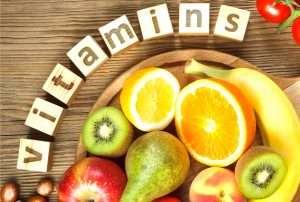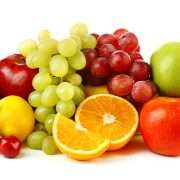What are the Types Of Vitamins? How Do They Function?

Let us admit, we all, at some point, have faced some or the other issue with our body functioning and have paid some big bucks to visit the doc and find out the cause. And uh oh, sometimes, it’s nothing but the fault in vitamin function that your body screams for, by some discomfort in the ordinary physical health.
As you must be aware, Vitamin function is a crucial component to keep your body process running smoothly, and without their presence, the body can become dysfunctional in some or other ways. And the strange part? All the vitamins function differently and have a fixed role to play and a specific task to take care of.
The deficiency of even one of them can bring consequences that can become difficult for the body to continue its normal functioning. Scientifically, these vitamins are divided into 2 major categories, based on their solubilities in water.
The water-soluble are the vitamins of the B group and the Vitamin C (also known as ascorbic
acid) while the fat-soluble are the vitamins A, D, E, and K. These vitamins are not really required to be consumed additionally as they are water-insoluble, are not even excreted that easily by the body, and in most cases, the requirement is fulfilled simply with a balanced diet.
What Are The Types Of Vitamins, And Where Do We Find Them?
The vitamins that fall under the Fat soluble category are abundant in natural foods and can be consumed quickly to combat the deficiency and the body’s requirements. Let us quickly dive in to know more about them and find out where to look for, when you want them in adequate amounts for your body functioning.
Vitamin A: is the main component that keeps your bone health in check by maintaining the retinol and calcium levels in your body. They also let you maintain the teeth, bone health, mucus membrane, and eye functioning. You can find this Vitamin in milk products and all the leafy vegetables.
The sunny Vitamin, also scientifically called Vitamin D, is essential for the body, as the deficiency in this can result in the depletion of vitamin A and calcium. It helps to absorb them in the body, and the best way to maintain adequate levels of this in the body is to soak yourself in the sun every morning for 10 minutes, and you’d be good to go!
Vitamin E: also recognized as one of the very effective antioxidants of the body, regulates the body’s toxicity and protects your cell wall in the body. This Vitamin can be found in nuts and seeds, egg yolks, and of course, in leafy vegetables.
The Vitamin that does the magic of clotting your blood if you wound your body is none other than Vitamin K. Without this, blood clotting can be a critical issue to be managed. This Vitamin is found in Broccoli, asparagus, spinach, sprouts, and many more sources.
Since you are now super updated about the first category of Vitamins, why not take out some more time and read a bit about the water-soluble ones too?
Wondering which all vitamins fall under this category? Well, here is the list for you. Water-soluble vitamins comprise of :
- Vitamin B1
- Vitamin B2
- Vitamin B6
- Vitamin B12
- Folic Acid
- Biotin
- Vitamin C
Now let’s quickly read about the significance each has for your body and how it is so crucial for you, and where to find them in reasonable quantities that would suffice your body’s needs.
The first one on the list is Vitamin B1, also known as thiamine, which regulates the nerves and energy metabolism. It is mainly found in nuts and seeds, whole wheat bread, and legumes.
Then comes Vitamin B2, which does the crucial function of maintaining the regular operation of vision and production of the RBCs that are a very integral part of the body system. The best source of this vitamin type is the milk products and the green veggies in your kitchen.
The next on the list is Vitamin B3, which regulates the nervous and digestive systems and looks after your skin health to keep it clear and glowy! This ingredient can be found in poultry, meat, mushrooms, peanut butter, etc.
Followed by that is Vitamin B6, which performs the protein and red blood cell metabolism. You can very easily find this Vitamin in surplus in non-vegetarian foods and some fruits but have fewer options for the vegans out there!
Then comes the super important, Vitamin B12, which is crucial for nerve functioning and functions its regulation. If you suffer from a deficiency in this vitamin type can lead to aches in the body and be fulfilled by meat, egg, poultry, and milk products.
Also Read: Benefits Of Vitamin C For Skin
Biotin, one of the most crucial elements for your hair health and skin, is produced in the intestinal bacteria and is least required to be consumed externally by anyone. This vitamin type plays a significant role in the energy metabolism in the body.
Folic acid functions to synthesize the new cells for the DNA and produce red blood cells. Sometimes a deficiency of this vitamin type can lead to ulcers, and the best source of this Vitamin is seeds, legumes, and leafy veggies.
The last on the list is Vitamin C, which is found in all the citrus fruits around you, from lemons to oranges to Indian gooseberries and what not! It does the vital function of absorbing iron and maintaining the immune system with its tangy taste!
Take Away from this:
With this long and never-ending list of what the different vitamin types offer us, we can imagine how crucial it is to maintain them in the required amount to ensure a healthy and everyday life. So make it a point to include every kind of food in your diet that balances your lifestyle changes, and that would cover all the vitamin requirements that your body would crave!














